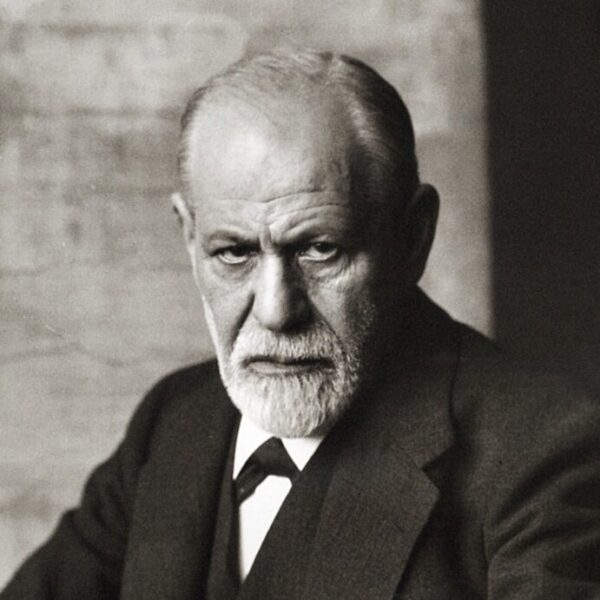An Overview of Dynamic Psychotherapy: Unlocking the Unconscious for Emotional Healing
Dynamic psychotherapy, often referred to as psychodynamic therapy, is a form of therapy rooted in the belief that our emotions and behaviours are influenced by unconscious forces, past experiences, and unresolved conflicts. This therapeutic approach focuses on gaining insight into these deeper layers of the psyche to promote emotional healing and personal growth.
In this blog post, we’ll explore the key principles, techniques, and benefits of dynamic psychotherapy and why it remains a widely-used and effective approach for treating a variety of mental health issues.
What is Dynamic Psychotherapy?
Dynamic psychotherapy evolved from psychoanalysis, the therapeutic approach developed by Sigmund Freud. While traditional psychoanalysis typically involves long-term, intensive treatment, dynamic psychotherapy is more focused and time-limited. The goal is to help individuals understand how their unconscious thoughts, feelings, and past experiences shape their present behaviour.
At its core, dynamic psychotherapy helps clients explore emotional struggles, understand the root causes of their distress, and bring unconscious feelings into conscious awareness. This process enables individuals to gain insights into their emotional world, allowing them to work through unresolved issues and develop healthier coping mechanisms.
Key Concepts in Dynamic Psychotherapy
Dynamic psychotherapy draws on several key concepts that help explain how past experiences and unconscious processes influence present behaviour:
- The Unconscious Mind
Dynamic psychotherapy operates on the idea that much of our mental life—thoughts, memories, and feelings—exists in the unconscious. These unconscious elements, which are often linked to early childhood experiences, can shape how we react to situations and form patterns in relationships. By bringing these unconscious conflicts to the surface, individuals can better understand and manage their emotions. - Defence Mechanisms
Defence mechanisms are unconscious strategies the mind uses to protect itself from painful or uncomfortable feelings. These might include repression, denial, projection, or rationalisation. Dynamic psychotherapy helps individuals recognise these defences and understand how they might be keeping them stuck in unhelpful patterns of behaviour. - Transference and Countertransference
Transference occurs when a client unconsciously projects feelings, beliefs, or expectations from past relationships onto the therapist. For example, a client might react to the therapist in the same way they reacted to a parent or other significant figure. Countertransference refers to the therapist’s emotional response to the client. In dynamic psychotherapy, exploring these reactions can provide valuable insights into the client’s relational patterns and unresolved conflicts. - Attachment and Early Relationships
Early relationships, particularly those with caregivers, play a crucial role in shaping our emotional development. In dynamic psychotherapy, therapists help clients explore how their early attachment experiences influence their current relationships and emotional challenges. - The Therapeutic Relationship
The relationship between the therapist and the client is central to dynamic psychotherapy. By creating a safe and trusting space, the therapist helps the client explore their emotions and unconscious conflicts without fear of judgment. This relationship becomes a model for healthier emotional connections in the client’s life.
Techniques Used in Dynamic Psychotherapy
Dynamic psychotherapy focuses on in-depth exploration and understanding, and the techniques used are designed to help individuals gain insight into their unconscious mind and emotional processes. Some common techniques include:
- Free Association
Free association is a process where the client speaks freely about whatever comes to mind without censoring their thoughts. This technique allows unconscious thoughts and feelings to surface, helping the therapist and client uncover underlying emotional conflicts. - Interpretation
The therapist helps the client make sense of their thoughts, emotions, and behaviours by offering interpretations. These interpretations are designed to help the client understand how unconscious processes and past experiences are influencing their present-day issues. - Exploring Dreams
In dynamic psychotherapy, dreams are seen as windows into the unconscious. By analysing dreams, the therapist and client can uncover repressed feelings or conflicts that may not be immediately apparent in waking life. - Examining Patterns
Dynamic therapy focuses on identifying recurring patterns in the client’s life, particularly in relationships. These patterns often reflect unresolved issues from the past. By recognising and understanding these patterns, the client can begin to break free from them and develop healthier ways of relating to others. - Working with Resistance
Clients may resist addressing certain thoughts or feelings, often unconsciously, as a defence against emotional pain. In dynamic psychotherapy, the therapist helps the client recognise and work through this resistance, leading to deeper self-awareness.
Benefits of Dynamic Psychotherapy
Dynamic psychotherapy offers a range of benefits for individuals struggling with emotional and relational difficulties. Some of the key benefits include:
- Deep Emotional Insight
Dynamic psychotherapy helps individuals gain a deeper understanding of their emotions and how unconscious processes influence their thoughts and behaviours. This increased insight allows them to address the root causes of their emotional distress. - Healing from Past Trauma
By exploring past experiences and unresolved conflicts, dynamic psychotherapy can help individuals process and heal from past trauma. This can lead to significant emotional relief and a greater sense of freedom in the present. - Improved Relationships
One of the primary focuses of dynamic psychotherapy is helping individuals understand how their past relationships and early attachment experiences impact their current relationships. This insight allows individuals to develop healthier, more fulfilling connections with others. - Increased Self-Awareness
Dynamic psychotherapy encourages self-reflection, helping individuals become more aware of their thoughts, feelings, and behaviours. This increased self-awareness enables them to make more conscious, intentional choices in their lives. - Long-Lasting Change
While dynamic psychotherapy may take time to explore deeper emotional issues, it often leads to long-lasting, transformative change. By addressing the underlying causes of emotional struggles, clients can experience significant shifts in their emotional well-being and overall quality of life.
Who Can Benefit from Dynamic Psychotherapy?
Dynamic psychotherapy is particularly effective for individuals dealing with:
- Anxiety
- Depression
- Relationship difficulties
- Low self-esteem
- Emotional trauma
- Unresolved grief
- Personality disorders
- Chronic feelings of emptiness or dissatisfaction
It is also beneficial for those seeking to gain a deeper understanding of their inner world and improve their emotional intelligence and relational patterns.
In Summary
Dynamic psychotherapy is a rich and insightful therapeutic approach that delves into the unconscious mind to uncover the root causes of emotional distress. By exploring past experiences, unconscious conflicts, and relational patterns, individuals can gain a deeper understanding of themselves and work through unresolved issues that affect their present-day lives. Through this process, dynamic psychotherapy offers the opportunity for profound emotional healing, greater self-awareness, and long-lasting personal growth.
If you’re looking for a therapy model that focuses on deep emotional insight and transformation, dynamic psychotherapy may be the right choice for you. With the guidance of a skilled therapist, you can unlock the unconscious forces shaping your life and experience the healing power of self-understanding.



